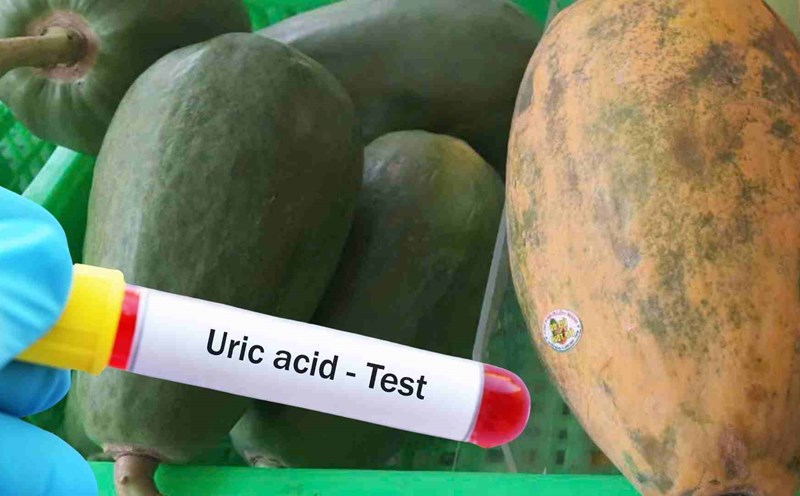Uric acid is a byproduct of purine breakdown - a substance found in many foods. When uric acid levels in the blood increase, it can crystallize into urate crystals, causing gout and the formation of urate stones in the kidneys. According to the World Health Organization, dietary control is one of the important factors to prevent diseases related to purine metabolism disorders.
Dates are a fruit that is low in purines, rich in soluble fiber, potassium, magnesium and antioxidants such as flavonoids, tannins. A study published in the Journal of Renal Nutrition shows that a diet rich in potassium helps increase the excretion of uric acid through urine, thereby reducing the risk of urate crystallization in the kidneys. Dates provide about 656 mg of potassium per 100g a significant amount that supports kidney excretion.
In addition, dates contain many antioxidants, which have anti-inflammatory effects - a factor that promotes the formation of urate crystals. Flavonoids in dates have the ability to inhibit xanthine oxidase - an enzyme involved in the production of uric acid. Inhibiting this enzyme is similar to the mechanism of allopurinol to treat gout.
In addition, the fiber in dates also helps control sugar and blood lipids - two factors related to metabolic syndrome, contributing to increased uric acid. Nutritionists recommend consuming foods rich in fiber to reduce the burden on the kidneys and prevent stones.
After knowing the above properties of dates, housewives can instruct family members to eat dates properly. The amount of dates consumed is moderate to 3-5 QQH/day and combined with a diet low in purines to help reduce uric acid, protect kidney function, and effectively prevent urate stones.











